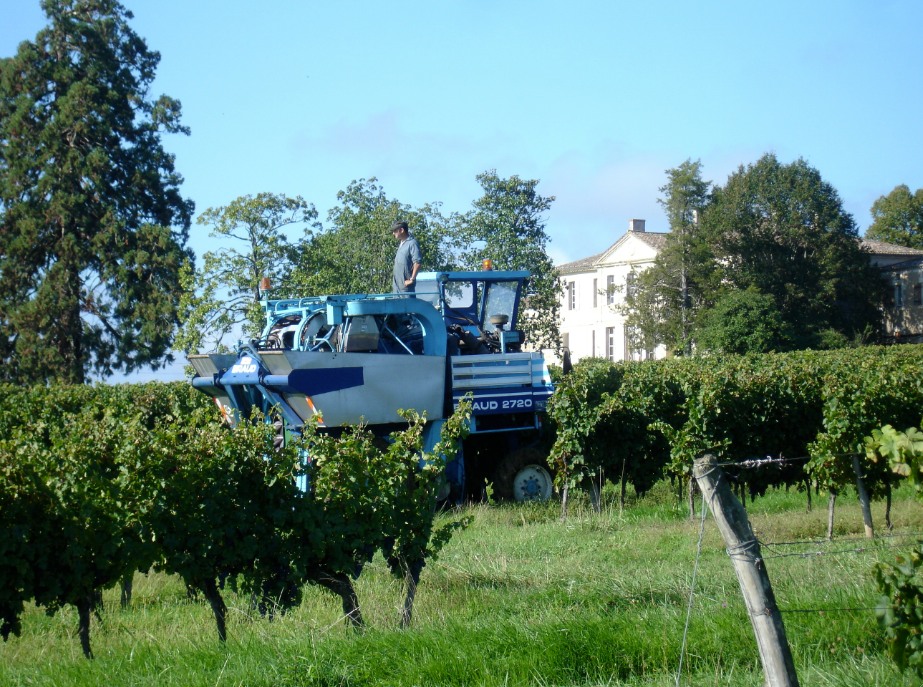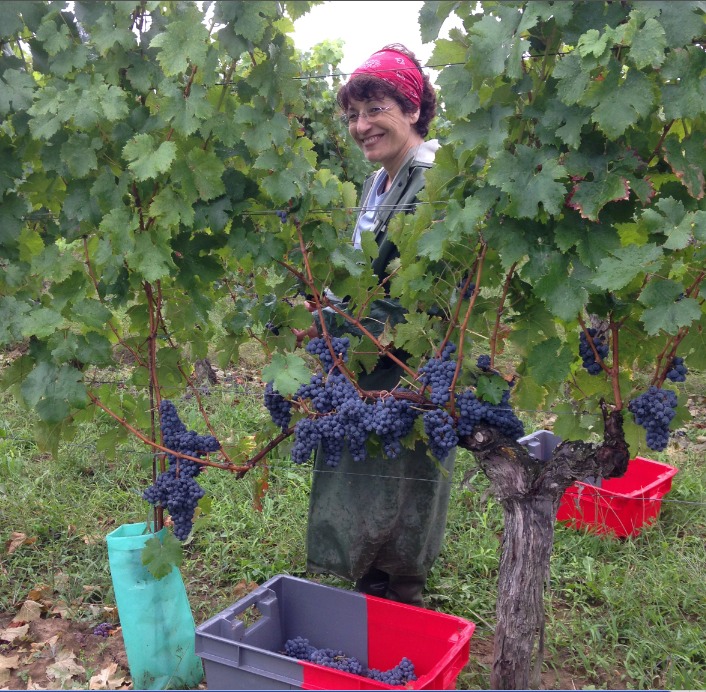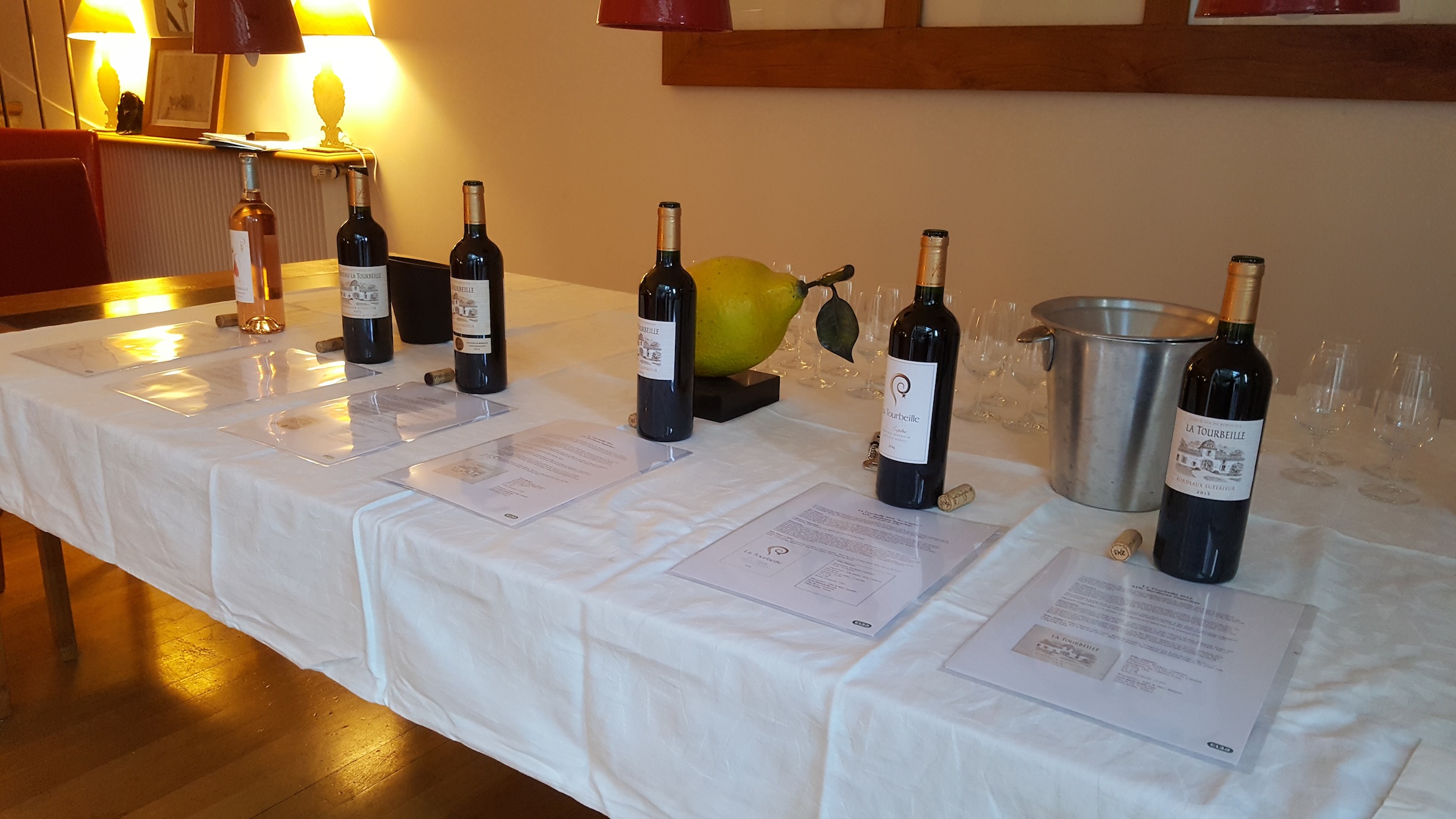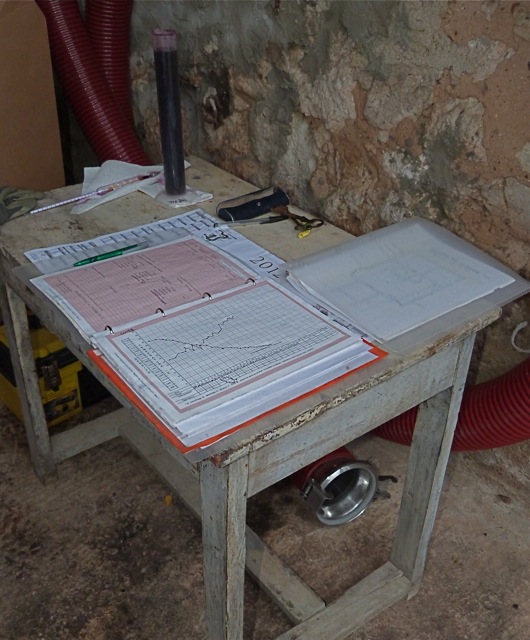For Geneviève
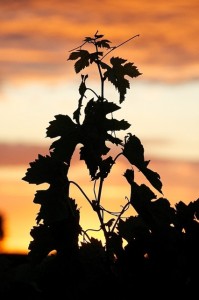
Early September. I’ve been thinking a lot about pregnancy lately; three babies come, grown and flown the coop, the last just this month. Expectant mothers don’t have an easy lot of it. The weight, the body working on overdrive. The worry. Then again, the glory parts are undeniable. Fullness, fertility, the fun of dancing with a newborn in your arms.
It’s two weeks before wine harvest and up on the plateau mother earth is about to go into labor. Most patient of patients, not a groan or complaint; she puts up with our poking and testing, with the insects and fungus, with the rain at the wrong time or wrong amounts. She submits to our sometimes clumsy ministrations, queenly Nature to our novice husbandry. I wonder what she thinks of this joint venture of a pregnancy, her fruit so much now in our hands, our hands tied by the omnipotent weather. What can we control? Are we up to the task? Are we totally mad?
The chai is ready. John and Henri have put in weeks of hard labor, weeks of cracking, wrenching, hammering; dragging out of planks and iron and ignoble cement. Weeks of measuring and calculating; of repairing walls and floor, mixing chaux a la Ben Hur in ratios of sand, earth, straw and spit for a traditional mason’s glue that will breathe, that will allow for a yeast of the terroir to structure a unique wine as it inhales local earth even in the walls. They constructed shutters, doors, sanded, painted. Manifested electricity, plumbing, water canals and run off reservoirs… Until finally the arrival of the cuves: great stainless steel cradles, berthed on a truck big enough to carry ships, chauffeured by an acrobat. Our shiny, two ton vessel virgins floated into the pristine nursery, spread their tendrils and planted roots.
But of course first, always first, the Land. We’re in the field with the farmer and he’s walking relaxed. He’s tended these parcels for thirty years, first as a teenager following his father, then on his own; he knows he’s done good work. During his tenure he did away with unnecessary chemical interventions and moved to organic fertilizer; he is one of the rare locals who feeds the vineyard with matured manure from his own cows. Only people he trusts are allowed to touch the vines. “Every worker leaves a fingerprint – you can tell exactly who worked a row, just by the way the sarments are cut.” A farmer in his bones, an eminently practical man, a cautious man of an earlier epoch forged by accidents, bad weather, bad luck. But over the years he’s also been forged by some force of female nature, something intrinsically feminine in the land. He probably wouldn’t admit it, but I’ve seen him out of the corner of my eye, seen him murmur to his cows, to his horses, to the vines. He speaks to the earth the way he speaks to his daughters. Admonishing or praising, he wills them to grow strong. He calls the earth “she” as he laments her mistreatment; as he warns me, preaching to the choir, that she needs protection.
The oenologue arrives and we’re drawn back into weather-talk. The recent unseasonal rains have made rot part of the local reality. I bless this high plateau and old fashioned planting scheme. We’ve been spared so far, but who can say how much longer we’ll hold out, so the debate begins: wait ‘til the last, optimal minute for ripeness, versus harvesting before rot might reduce the yield. Farmers live or witness their fair share of catastrophe scenarios so they favor safety – an earlier harvest to obtain the highest yield. It’s a bit problematic since we vintners must focus less on yield and more on quality.
The discussion continues in the chai where we take further instructions – walk the parcels every two days, check the hidden insides of the bunches for signs of rot, bring a lab sample on Tuesday (600 berries, crushed and poured into 3 bottles) follow instructions to the letter, call immediately if signs are worrying.
Not a job for a neurotic, but it will fall to me; John is going away to take our baby off to college. They laugh at my fretting, “no big deal,” they say. Not much comfort, so I will over-do everything the first time.
The weather remains fickle. How to set Harvest Day becomes the constant conversation. An experienced maitre de chai down the road says do everything the oenologue tells you. Farmers recount nightmare anecdotes about losing an entire crop because they waited too long. The oenologue reminds us that alarmism is counter productive. Someone else intones, trust your own judgment.
It’s a relief when John comes home. Birth is no fun alone and now with the weather so iffy, we’re getting warnings the baby might come early. He attends to equipment and administrative documents and a mounting pile of bills. Together we walk the vines each day, as if by keeping them company we can keep them healthy. I’m pleased to pick samples, crush baggies of grapes by the kitchen sink, pour the filtered juice into sampling bottles. It is pink. It is so sweet the sugar hurts my teeth. I dash to the Lab, up and down village lanes past cow fields, through lost country, through paradise, and the Lab reminds me of sonograms, blood tests and weight checks by warm, white coated nurses soothing me through the last weeks of heaviness and jitters. The nurse takes my bottles and notes I’ve labeled them incorrectly. “We won’t punish you this time.” Tears prick my eyes, I suppose my hormones are frantic. She is forced to wink to let me know it was a joke.
In the vineyard we gather again with farmer and oenologue to examine the lady; measuring her girth, her ripeness, her taste, her belly full of rising sweetness.
It rains that night. A terrible clap of thunder and the skies open. Water, water water. At any other time I would be cheering, grateful, a standing ovation for this recharge of our subterranean sources. But we lie awake together now and worry. We understand in our guts why the farmers grumble every year at this time, why they say nothing positive. If the grapes aren’t optimum mature, what will our wine taste like? If a caesarean is ordered, what kind of soothing can we then do in the vats? And it’s not just about spoiled grapes. It’s the investment in labor. And the bills. What if our hopes of making 12,000 bottles of delicious vin du terroir cannot materialize? We could make vinegar, but will we go bankrupt?
Such are the musings of a wine region in the night when the rain pours close to harvest time. Now we are all husbands to the great lady swelling on the plateau. We tend and we test and we wait. And in our powerlessness, we say a Pater Noster for sunshine.
But even Caesar hedged his bets, honoring roman and pagan gods on the same coin, so I lie here in the dark and I plot: if it rains one more time, I swear I’m getting out my long, white, boxed up, sacramental dress and go marching through the vineyards for a sun dance to Our Mother. A young goddess friend of mine told me that will work for sure.

